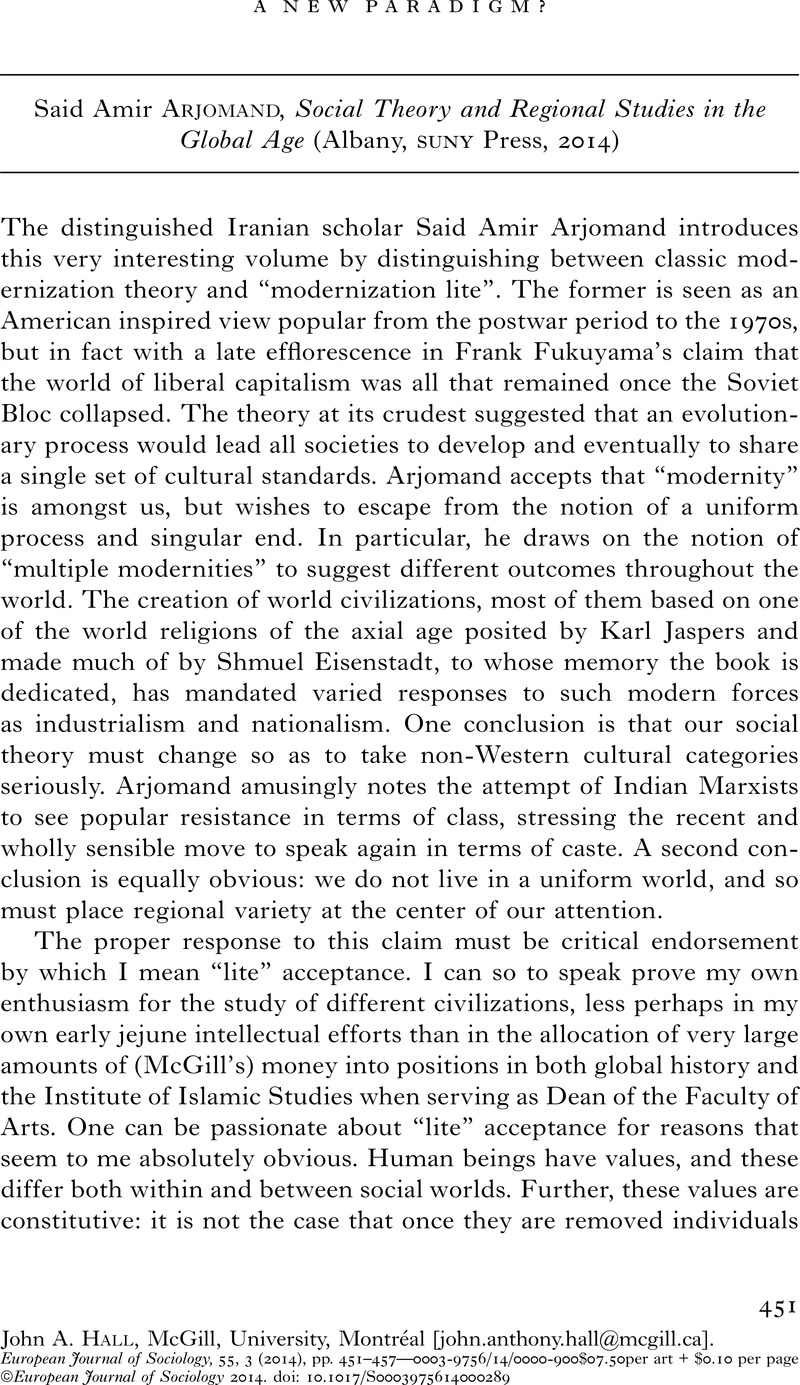No CrossRef data available.
Article contents
A New Paradigm? - Said Amir Arjomand, Social Theory and Regional Studies in the Global Age (Albany, SUNY Press, 2014)
Published online by Cambridge University Press: 16 January 2015
Abstract

- Type
- Book Reviews
- Information
- European Journal of Sociology / Archives Européennes de Sociologie , Volume 55 , Issue 3 , December 2014 , pp. 451 - 457
- Copyright
- Copyright © A.E.S. 2014
References
1 C.A. Bayly, The Birth of the Modern World, 1980-1914, Oxford, Blackwell, 2004—an account that is especially good on the revitalization of the world religions in modern times. Very considerable intellectual advance has also come from global history, not least from the Global Economic History Network at LSE.
2 R.N. Bellah and H. Joas, eds, The Axial Age and its Consequences, Cambridge (MA), Harvard University Press, 2012.
3 This is a good moment to commend the attention given by Peter Katzenstein in recent years to civilizational analysis—particularly in “A world of plural and pluralist civilizations: Multiple actors, traditions, and practices”, in P.J. Katzenstein, ed., Civilizations in World Politics: Plural and pluralist perspectives, London and New York, Routledge, 2010. Several authors cite his work in support of the general position of this volume. But that is not really correct. Katzenstein is aware of different civilizations but insists that that they are plural internally—though he adds that treating a civilization in essentialist terms can push it into intolerant unity.
4 M. Lange, Educations in Ethnic Violence: Identity, Educational Bubbles, and Resource Mobilization, Cambridge and New York, Cambridge University Press, 2011.
5 The fact that a theory comes from the South does not mean that it is necessarily correct. Dependency theory suggested that development was unlikely to take place, or at least to become highly distorted. Whilst there is some truth there, more striking is the certainty that development is in fact taking place, and at massive speed. However, that is not to deny that many of the tenets of the theory most certainly apply to the world of failed states, though what matters most of all there are the ethnic divisions within such virtual realities.




